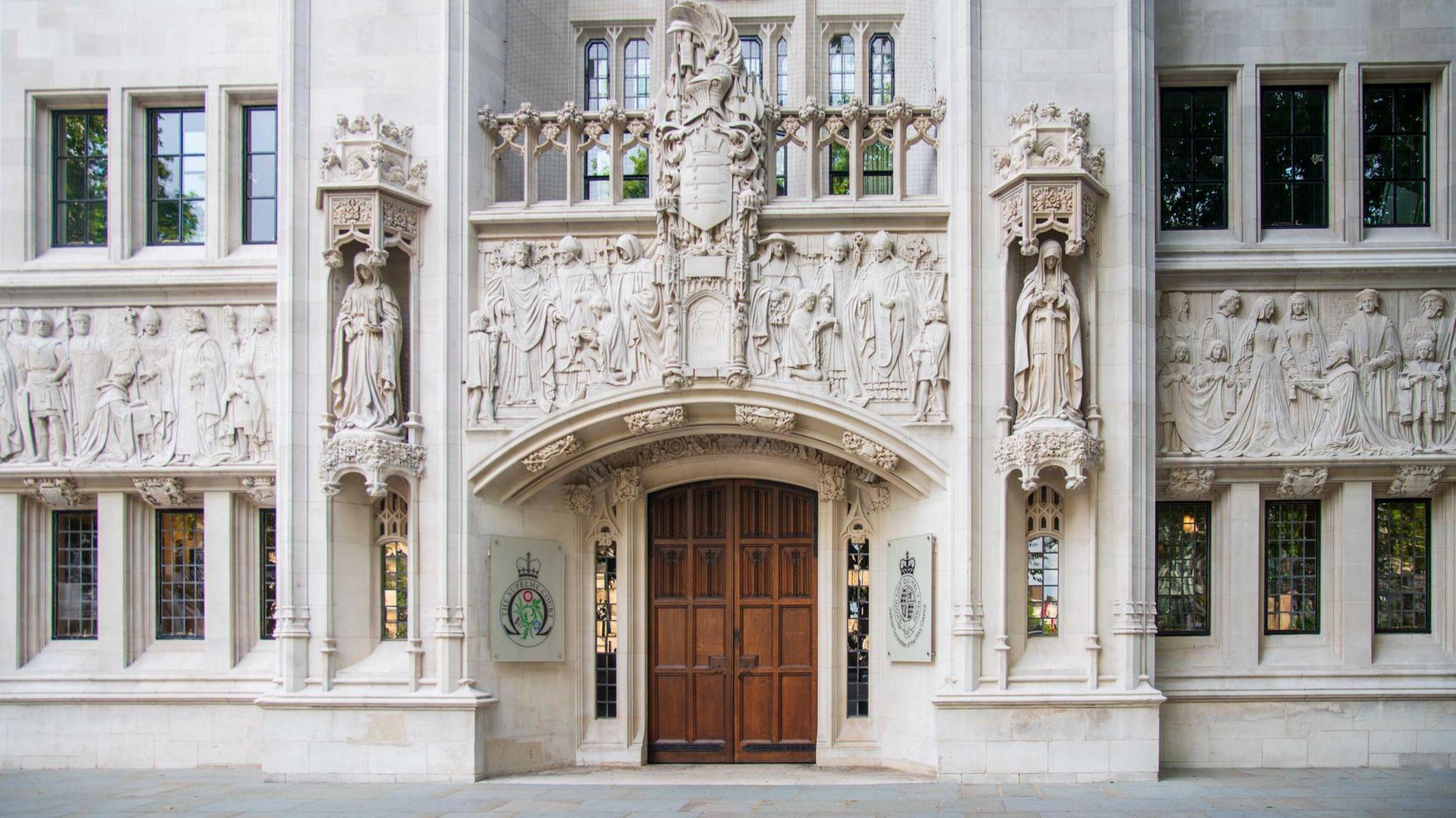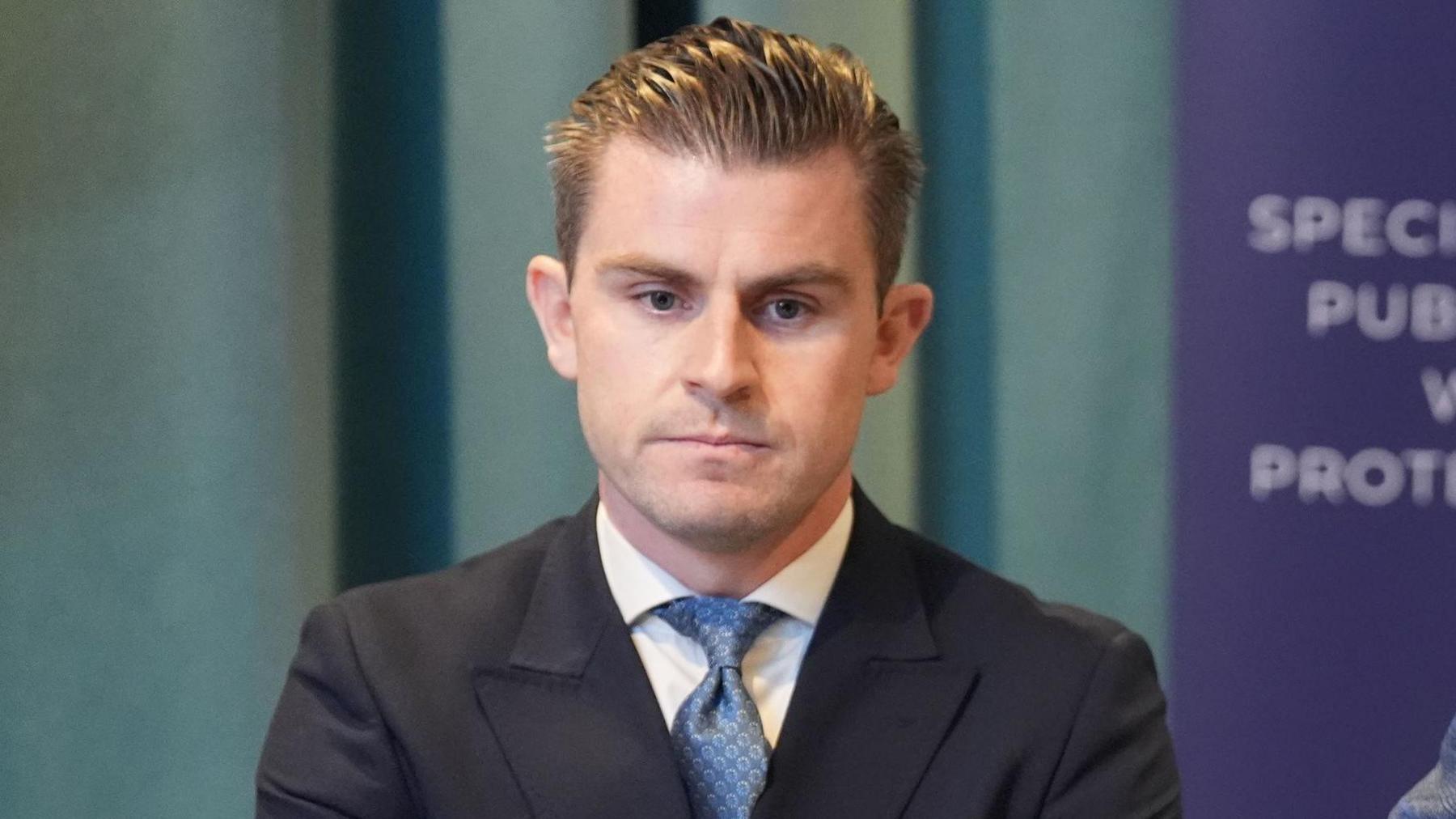Family wins appeal in UK Supreme Court over religious education

The Supreme Court is the UK's highest court
- Published
The Christian religious education (RE) taught in schools in Northern Ireland is unlawful, the UK Supreme Court has ruled.
In a unanimous judgement the UK's highest court allowed an appeal by an unnamed father and daughter from Northern Ireland.
In 2022, the High Court in Belfast ruled that the Christian-based RE taught at primary schools in Northern Ireland was unlawful. However, the Department of Education (DE) subsequently won an appeal against that judgement.
But on Wednesday the Supreme Court unanimously allowed the father and daughter's subsequent appeal and dismissed the Department's cross-appeal.
Details of the case
The father and daughter challenged the legality of the teaching of RE and the practice of collective worship in the primary school which she attended between the ages of four and seven.
The proceedings involved points of law which affected those involved in this case as well as the teaching of RE and the practice of collective worship more generally in Northern Ireland.

The ruling says the RE syllabus needs to be revised
The Supreme Court backed the original High Court judgement from 2022 which held that as both RE and collective worship in the school followed the core syllabus specified by the DE - they were not conveyed in "an objective, critical, and pluralistic manner".
The court said the judgement "was not about secularism in the education system" and made clear that "no one is suggesting that RE should not be provided in schools in Northern Ireland".
The court said: "The family strongly support the provision of religious education provided it does not amount to indoctrination."
What led to this legal action?
The legal action was taken by a father and his daughter who attended a Belfast primary school. The family took the case anonymously.
In a state-controlled school, the girl received non-denominational Christian religious education and took part in Christian worship.
However, her parents did not wish her to be taught that Christianity was an absolute truth.
In 2019, they wrote to the school voicing concerns that it did not conform with their own beliefs.
The family asked if inspection mechanisms were in place to ensure that pupils were receiving a balanced religious education.
The school replied that its religious education was "Bible-based" and followed the core syllabus for education.
The family argued that their rights, which requires the State providing education to "respect the right of parents to ensure such education is in conformity with their own religious and philosophical convictions", had been contravened.
'A watershed moment'

Darragh Mackin represented the father and daughter
Phoenix Law, who acted on behalf of the father and daughter, have welcomed the judgement.
In a statement, Darragh Mackin, the solicitor for the family, said the decision was "a watershed moment for educational rights in this jurisdiction".
"The Supreme Court has confirmed that all children are entitled to an education that respects their freedom of thought, conscience, and religion," he said.
"The judgement makes clear that the state cannot rely on withdrawal mechanisms to justify religious instruction."
Mr Mackin continued: "Schools must not place children in the impossible position of being singled out or stigmatised simply because their families do not share the religious worldview embedded in the curriculum."
'Our schools should represent everyone'
There has also been reaction to the ruling from political parties.
Green party councillor Anthony Flynn congratulated the family and said the ruling "is hugely significant, and can't be ignored by the [Northern Ireland] Executive."
"No child in a publicly-funded school should be pushed into a religious worldview that isn't theirs. Northern Ireland is changing, our communities are diverse, and our education system needs to reflect that."
Flynn said RE "should be balanced, inclusive and modern" and that this "is a chance to finally update NI's education framework so every child feels welcome and respected".
"It's 2025. Our schools should represent everyone," he added.
Analysis: 'Some things are likely to change'
By Robbie Meredith, Education and arts correspondent, BBC News NI:
It is important to be clear that the Supreme Court ruling is not going to mean that the teaching of RE in schools will end, or that there will be no more hymns or prayers in school assemblies.
But it does mean that some things are likely to change.
The judges said that was "a complete absence of plurality in relation to the teachings or practices of any other religions or non-religious traditions and philosophies," especially in primary schools.
So in future children are likely to be taught about a range of religions in RE, not just Christianity, from the earliest years of primary school.
Schools may also have to think about inviting a wider range of speakers to school assemblies, not just Christian ministers or organisations.
Related topics
- Published5 July 2022

